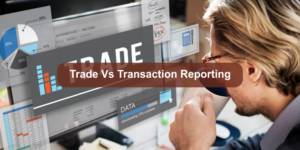
Blog
Exchange-Traded Funds (ETF)
Exchange-Traded Funds (ETF)
Much like stocks, Exchange-Traded Funds (ETF) get traded on an exchange. ETFs are inclusive of stocks, commodities, with an arbitrage mechanism. It is nothing but a basket of stocks that reflects the composition of indices. ETFs are welcoming the new panorama of investment opportunities to retail as well as institutional investors enabling exposure real-time basis at a low cost of investing.
Get complete CFA Online Course by experts Click Here
Characterizing ETF
Exchange-Traded Funds (ETF) is a speculative investment vehicle that contributes reserves pooled by financial specialists to follow a record, a product, or a crate of advantages. An exchange-traded fund (ETF) collectively inclusive of securities like stocks that often tracks an underlying index, although they can invest in any number of industry sectors or use various strategies. At times, price fluctuations cause mispricing between the ETF and its underlying assets. The opportunity for arbitrage for ETF funds followed by increased or decreased demand with the market movement for ETF. Its portfolio reflects the index to track. But, unlike an index fund, the units of the ETF are listed and traded in Demat form on a stock exchange, and their value changes from time to time and reflects changes in the list of prices. Trade exchanged assets (ETFs) have various highlights that can make these investment tools perfect for young investors with a small amount of investment to contribute. It is quite feasible to build a diversified portfolio with relatively low investment amounts.
How it functions?
The fund manager with the underlying assets designs the fund in such a way to track the performance and then sell shares in the fund to potential investors. ETFs follows the risk-return trade-off with diversification option. As inclusive of the majority are indexed funds, Most ETFs are considered fairly safe instruments. While all investments carry risk and indexed funds are exposed to the full volatility of the market. During trading hours, investors can buy and sell ETFs whenever possible. Like a stock, every ETF has a ticker symbol and a real-time changing price. In contrast to a share, however, the number of outstanding shares can change each day based on the mechanisms to generate and redeem the shares.
Buffet’s View
Warren Buffett comes with a recommendation for Exchange Traded Funds (ETFs) to most investors and for good reasons. He called them as valued stocks. Buffett believes if the potential investor has the right horizon and don’t want to spend much time on investing in the stock market, ETFs could be the right way.
Get complete FRM Online Course by experts Click Here
Risk Involved?
ETFs subjects to counterparty risk that further raise systematic risks concern. ETFs are suitable for almost any potential investor, with a long-term goal, such as retirement. In fact, if you have a long time horizon, you may want to hold a higher percentage of stock ETFs in your portfolio to give you the best opportunity for growth.
How significant ETFs are?
ETFs, come with the diversification benefits of an index fund as well as the facility to sell or buy at real-time prices, even one unit of the fund. Expense ratios are typically lower than that of a mutual fund scheme.ETFs have gained popularity in benefits such as high liquidity, cost efficiency, and low-cost diversification. ETFs attract traders with a short-term liquidity perspective which further contributes to higher volatility in price movements for ETFs. Market participants continue to benefit from ETFs with benefits aligned.
Final Thoughts
ETFs are considered to be low-risk investments as featured with low-cost and basket of stocks or other securities clubbed together in a portfolio, increasing diversification. For most individual investors, ETFs represent an ideal type of investment avenue instrument with which to build a diversified portfolio. Due to the increase in gold prices, and liquidity issues in the physical gold market with lower demand, Investment through ETF stands a viable investment option.
Author: Deepika Shenolikar
About the Author: Deepika Shenolikar is professionally qualified as CFA (ICFAI) & a Risk Professional. Her primary interest lies in analyzing the market trends, investments, and aims for continual professional growth through learning.
Related:






